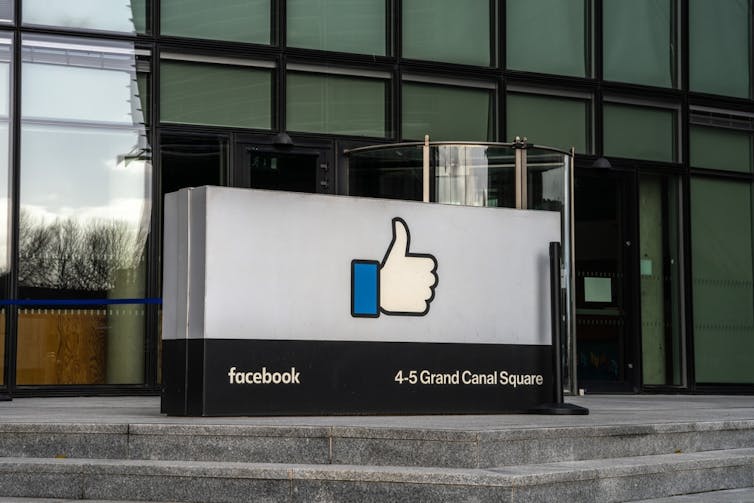
Facebook’s new ad-free tier could end annoying consent pop-ups, but it could also put a price on your privacy
Facebook and Instagram users in some parts of the world can now pay for an ad-free experience – but at what price?

We have reached a key juncture in the debate about online privacy, following Meta’s recent decision to offer some users paid-for ad-free access to Facebook and Instagram. The time has come to decide how much we value keeping our data, tastes and whereabouts to ourselves.
The main and often only way that free-to-use online services such as Google, Facebook, Instagram or TikTok make money is by selling data about user preferences to advertisers. And since the General Data Protection Regulation (GDPR) came into effect in the EU and the UK in 2018, firms have been allowed to track and sell this data to third parties, so long as they seek your explicit consent beforehand.
Most companies complied with GDPR by introducing those annoying pop-up windows that we’ve all come to know and hate when we open up a website. Popups are not explicitly required by the regulations, but they make clicking “OK” for tracking the easy choice, so they have been widely adopted by companies.
Not by all companies, however. Meta, Facebook’s owner, took a different approach. It chose to ask for consent just once amid the lengthy terms and conditions you are asked to read when signing up to its platform.
EU courts have now ruled this tactic is illegal, and the UK plans to do the same in its long-delayed reform of its data protection laws.
Paying for privacy
If you have a Facebook account and live in the EU, Switzerland or an EEA country, you will now be offered the choice between the standard targeted-ad social media experience, or you could start paying €10 (£8.72) (via browser) or €12 (in-app) per month for ad-free access.
Meta said the decision, first announced in August, was made “to address a number of evolving and emerging regulatory requirements in the region”. As well as the EU’s Digital Markets Act, this includes a recent ruling by the Court of Justice of the European Union (CJEU) that allows firms to track you if they offer a non-tracking alternative “for a reasonable fee”.
Meta says the CJEU “expressly recognised” subscription models as “a valid form of consent for an ads funded service”.
But is €10 per month a reasonable price to pay to be able to keep your personal data to yourself?
At first sight, the number does not seem to be too far off. Meta’s average revenue per user in Europe was US$6.34 (£5.17) per month in the third quarter of 2023.
In the US, it was US$18.70. Companies such as Tapestri – which pay you for your private information and sell it to advertisers – claim to pay people between US$8 and US$25 a month for information about their location and tastes.
But most people have no idea what the market value of their privacy is because it depends on so many different things. If you spend a lot of money online, you are worth more to advertisers.
If you share a lot of characteristics – such as gender, ethnicity, musical tastes, religion, or location – with someone that is already tracked, however, your data is worth less. The asymmetry between what you know about the commercial value of your data and what the companies selling it know makes it difficult to evaluate if you are getting a good deal.
ALSO READ: Your social media posts may be the reason your visa gets declined! Tips on getting a visa to travel!
There are other reasons why we should not expect many users to pay for an ad-free social media experience. Research shows that, whenever asked, people state that they value their private data a lot. In practice, when offered the choice, many of us give it away for a very low price in exchange for vague promises about privacy protection.
Whether this implies that we don’t value privacy, or that we don’t understand that we are giving it away for very cheap, is not clear.

The end of pop-ups?
So what’s the solution? An economist might suggest giving users ownership of their own data, letting them see how much the market offers for it, and then observing how they behave. We could then actively choose to pay in part or in full with our data to access websites showing targeted ads. This process would also cut down on the resources used by so many different websites to collect the same information about consumers.
A startup called Calden already lets you pick the parts of your private data you are happy to sell, and to whom. Letting users control their own data – and the monetisation of it – may create new issues, however. AI-powered users could be created to maximise fake ad revenue, for example.
It could also lead to more inequality. The commercial value of someone’s data rises in line with the amount of money they spend online. Paying for access with our data could put the less wealthy at a disadvantage.
One thing seems certain, however: this could mark the end of popup consent forms. As well as these recent EU changes, the UK is also planning to allow consumers to opt-out from pop-ups. This means consenting to give away your data would become the default to an even greater degree than it is right now.
As these new regulations are rolled out, we will learn whether it will lead to a normalisation of tracking without consent, indicating that we do not value privacy as much as we thought. Alternatively, we could move towards a system where we manage and trade our privacy like any other commodity.
And if some countries ban the practice of individual tracking altogether, “free” online services like search engines and social media platforms might eventually only be available to paying customers.
Renaud Foucart, Senior Lecturer in Economics, Lancaster University Management School, Lancaster University
This article is republished from The Conversation under a Creative Commons license. Read the original article.
